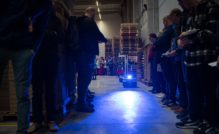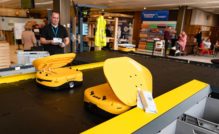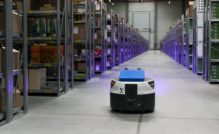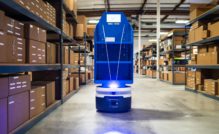8 years of David Lefnar at Sluno
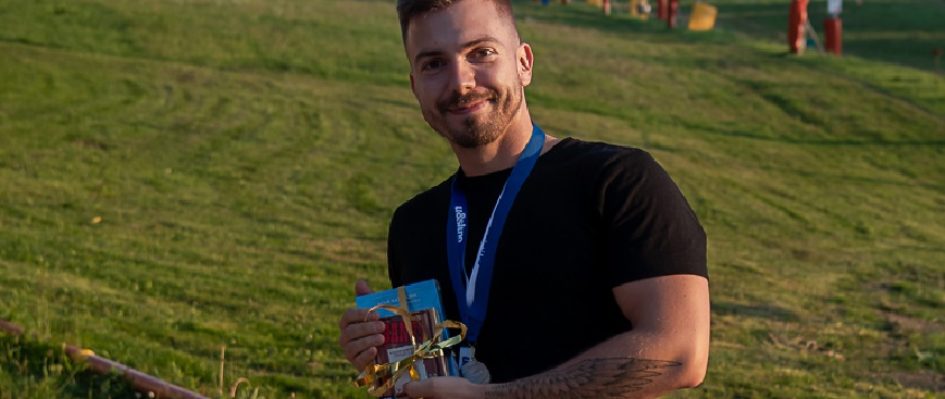
What was your first and last year at Sluno like?
The first year was really challenging. My predecessor’s last month at Sluno was upon us, and there was a lot of agenda to be handed over. I had to get my bearings quickly and operate as the lead manager of his agenda, with him being the senior worker and me a fresh rookie. They put me straight in hot water. However, nowadays, I’m glad they did it. I gained a lot of experience in a short time. I managed to overcome it also with the encouragement of my senior colleague Petr Michalik, my mentor. I was 22 years old and starting my very first job as a helpdesk specialist.
I hope this is not my last year, as I plan to stick around for a few more years. I am mainly responsible for our customer Albert Czech Republic, or I help my colleagues with COOP or Ukrainian customer Fozzy on the on-call service. We handle all kinds of operational problems. We are also involved in some of the development projects, which isn’t necessarily standard for support teams.
Where did you come across Sluno, and why did you decide to work for us? How did the interview proceed?
Well, my long-time friend Jozef Valencik introduced me to Sluno. His then Bachelor’s thesis supervisor and my current colleague Petr Bulava recommended Sluno. Pepa started at Sluno as a helpdesk specialist, and I wanted to obtain IT experience as soon as possible; thus, I tried it too. I enjoyed programming; however, there was no need for programmers at Sluno. Martina from HR directed me to supporting software applications, the GOLD retail system and all its modules, especially Central, Stock and Forecast. I gave it a go, and it became relatively quickly apparent that tech support does not involve constantly answering the phone to end users with problems. We specialise in technical application support, overlapping into programming. So, our daily bread is reading code.
What do you enjoy most about your job? What has Sluno taught you? What are you most proud of?
It’s probably a cliché; however, we face challenges all the time. We address operational difficulties that have a real impact on the customer’s day-to-day business. Thus, there’s a lot of pressure to ensure the customer doesn’t lose money. At the same time, it’s challenging to figure out the best and fastest solution to the problem. It’s not routine because the software and the customer are constantly evolving. I always have a lot to learn in terms of technologies, the GOLD product and process knowledge. At the same time, it has helped me move forward as a person. It has taught me more patience, resilience, and, last but not least, better communication. However, more than my personal achievements, I am proud that we can move forward as a team. We enjoy an excellent work atmosphere not only in the office but also in the company.

What does your typical working day look like?
At 8:30, we go out for coffee with the team as a group. Then I read my e-mails, check the service desk and start sorting my work. I tackle quick wins right away and schedule tasks that will take longer to address. Then we address issues that have been reported within our service desk. I primarily handle challenges that take longer or are more extensive or development issues. That takes up most of my day. Also, I often participate in many conference calls, either in-house, with the business owners, or with the IT support team on the customer side; they’re our partners.
If I had to break down my schedule; then consulting, either customer or in-house, accounts for 30% of my time. 30% represent bug fixes and development, another 30% troubleshooting and ensuring the systems are running correctly, and the rest is administration and reporting. I’m not really a fan of that.
Which technologies do you use?
It started with Oracle Forms 4.5, which is now a technology that is hardly used anymore. Gradually, we switched to forms written in Java or JavaScript and programmes written in ProC – C supporting the SQL code execution. Primarily, we are using SQL and PL/SQL, and Shell, UNIX and AIX for servers. My colleague also provides support for e-commerce projects; thus, he comes into contact with PHP or JavaScript. If you want to, you have the opportunity to grow in any direction at Sluno or pick up several other technologies.
How do you perceive the differences between a junior and a senior? What does a junior have to know?
The main difference lies in understanding the system. Some juniors have in-depth knowledge of technologies; however, the mastery of the processes and the system as a whole makes them seniors. A senior can provide advice and find solutions on their own.
In a perfect world, a junior should be familiar with any programming language. It is important that he or she can read it correctly, as understanding is the prerequisite for correctly comprehending the code logic. This is something you can’t do without if you want to identify a code problem. Working with a SQL database is the core, and then you need to know PL/SQL on top of that. On the fly, you will learn how to navigate the server environment and can learn other technologies, such as UNIX. That’s the type of knowledge I started out with, and maybe that’s why I caught on so quickly. On the other hand, one of my teammates had worked as a sound engineer – he did something completely different. Today I consider him one of my most capable colleagues.
What do you like to do, and where do you recharge your energy for work?
I get my energy boost at the gym, music recharges me, and I like to spend time with my family and friends. I like to play poker, which gave us the idea of organising a company tournament. And we have already held a couple of tournaments. I hope we can get it going again this year; we’re also inviting beginners. I also like to travel, especially to the Czech Republic and Europe. For a couple of years now, I’ve had a little Eurotrip in mind, where I’d like to travel through more European countries in a relatively short time.




















